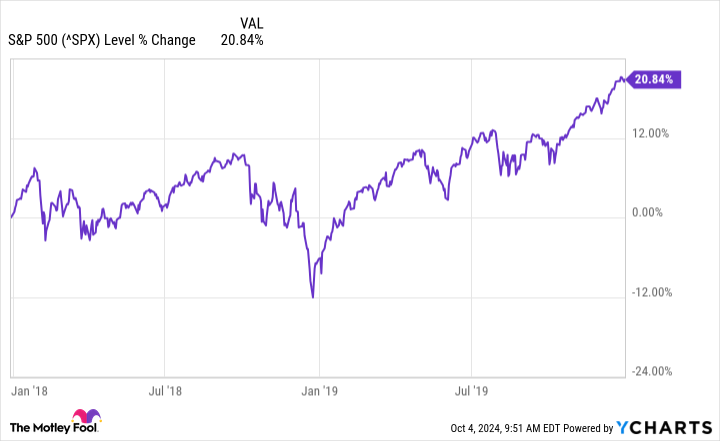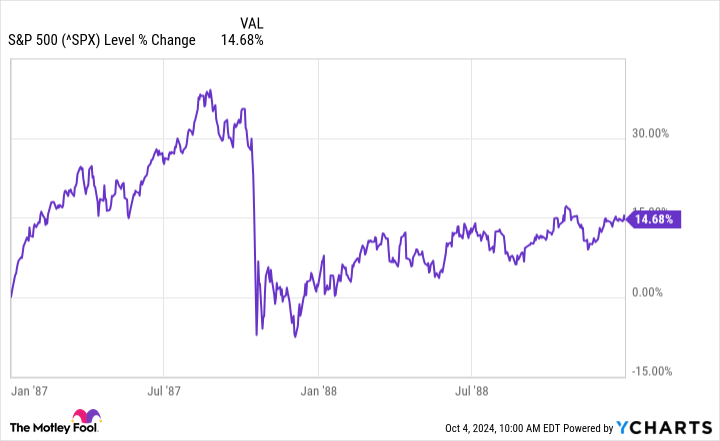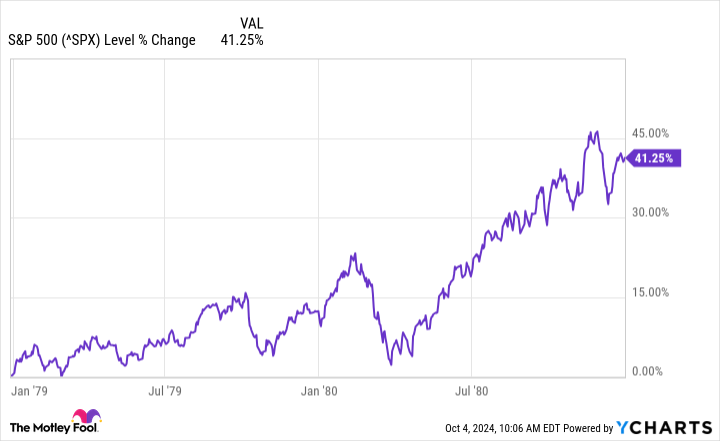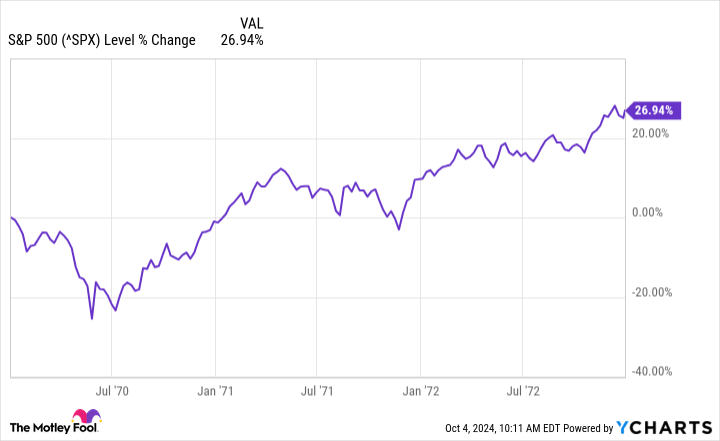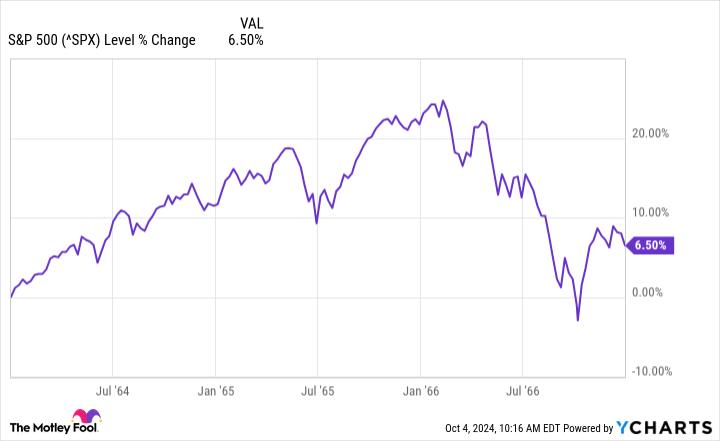Could Trump's Proposed Corporate Tax Cuts Fuel a Stock Market Boom? Here's What History Shows.
Former President Donald Trump signed the 2017 Tax Cuts and Jobs Act into law in December 2017. This bill included a major overhaul of the U.S. tax code, including reducing the corporate tax rate from a tiered range of 15% to 39% to a flat rate of 21%.
Now the GOP presidential nominee, Trump wants to cut the corporate tax rate from 21% to 15%. Some fret that further reductions could increase federal budget deficits. But could Trump's proposed corporate tax cuts fuel a stock market boom?
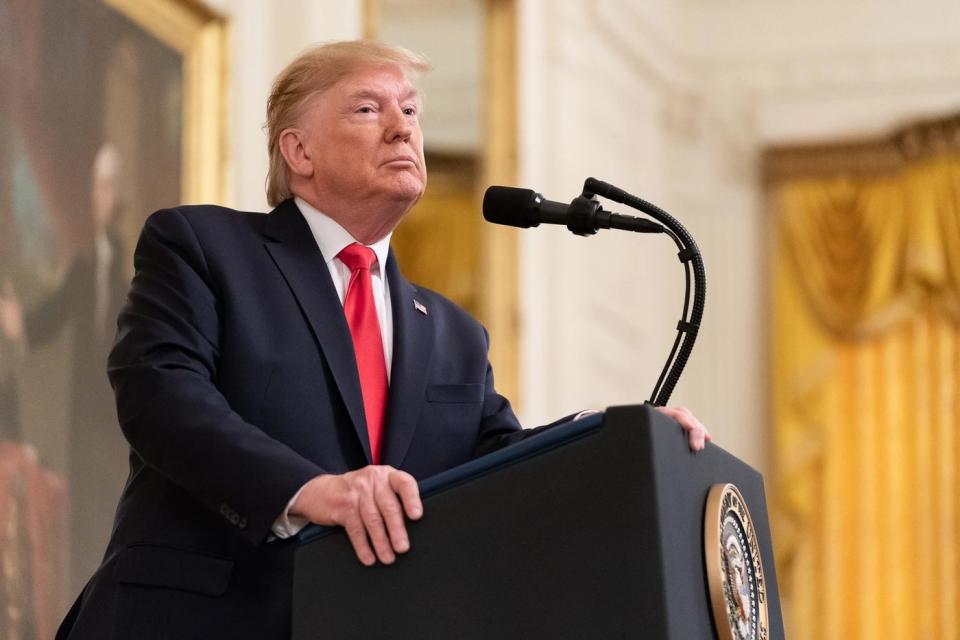
The investing case for corporate tax cuts
Why might further corporate tax cuts help stocks? When a company's costs decrease, its bottom line improves (assuming revenue doesn't also decline). Share price appreciation correlates with earnings growth over the long term. The main argument for corporate tax cuts from an investing standpoint is that they should lower income tax expenses for corporations, thereby boosting their earnings and ultimately their stock prices.
Some companies use a portion of their earnings to repurchase shares. Corporate tax cuts could enable them to spend more on stock buybacks. These buybacks reduce the number of outstanding shares, which makes the remaining shares on the market more valuable.
Companies can also use higher earnings to increase dividends. Juicier dividends could attract more investors and create buying pressure that increases share prices. They also boost a stock's total return.
Even if a company doesn't use increased earnings resulting from corporate tax cuts to repurchase shares or increase dividends, shareholders could still be rewarded. Reinvesting greater profits into the business in ways that fuel growth could cause a company's stock to rise over time.
A mixed bag historically
So will Trump's proposed corporate tax rate cut to 15% light a fire beneath the stock market? Maybe, but corporate tax cuts have been a mixed bag for stocks historically.
The Trump tax cuts that took effect in 2018 featured the first corporate tax rate decrease in decades. During the first year of the cuts, the S&P 500 (SNPINDEX: ^GSPC) fell roughly 6%. However, it rebounded in 2019 to finish nearly 21% higher over the two years.
Under former President Ronald Reagan, the maximum corporate tax rate was reduced from 46% to 40% in 1987 and then to 34% in 1988. The S&P 500 initially continued its bull market momentum in 1987, but the Black Monday crash caused the index to end the year up only 2%. The S&P rebounded in 1988 but didn't reclaim its previous high level.
Legislation signed into law by former President Jimmy Carter lowered the maximum corporate tax rate from 48% to 46% in 1979. The S&P 500 jumped 12% in the first year of the tax cut and by the end of 1980 had soared 41%.
In 1970, the maximum corporate tax rate fell from 52.8% to 49.2%. The following year, the rate declined again to 48%. The S&P 500 ended the first year down slightly. By the end of 1971, the end had risen nearly 10%. But by the end of 1972, the S&P had soared nearly 27% over the three years.
Former President John F. Kennedy made tax cuts a key part of his economic agenda. The maximum corporate tax rate was lowered from 52% to 50% in 1964 followed by a cut to 48% in 1965. The S&P rose 12% in year one of the tax cuts and was up nearly 23% by the end of year two. However, the index fell in 1966 resulting in a three-year gain of only 6.5%.
Following the end of World War II, the maximum corporate tax rate was reduced in 1946 from 40% to 38%. I don't have a chart to show because the S&P 500 didn't exist in its current form with 500 companies until 1957. However, the predecessor to the index sank nearly 12% in 1946 and was flat in 1947.
Finally, the first corporate tax rate cuts in U.S. history occurred in 1928 and 1929. In the first year, the maximum rate was reduced from 13.5% to 12%. In the second year, the maximum rate declined to 11%. The predecessor to the S&P 500 skyrocketed nearly 39% in 1928. But any student of history knows what happened next. The market crashed in October 1929 and continued to fall for the next three years.
What if corporate tax rates go up?
While former President Trump wants to cut corporate tax rates, Vice President Kamala Harris proposed increasing the rate from 21% to 28%. Would this move lead to a stock market bust? Again, history might surprise you.
My colleague Sean Williams recently looked at the five cases since 1950 when the maximum corporate tax rate was raised. In every instance, the S&P 500 rose in the first year of the higher tax rate. The average gain was 13% -- higher than the overall average annual gain for the index over the long term.
The key takeaway from all this is that corporate tax rate changes don't necessarily translate to the kinds of stock market moves many investors might expect. Why? For one thing, many companies take advantage of tax benefits and incentives and don't pay the maximum corporate tax rate. More importantly, though, many other factors affect the stock market beyond tax rates, including interest rates, geopolitical events, and overall economic growth.
Investors shouldn't count on a stock market boom if Trump wins and can implement his proposed tax cuts. However, what they can count on is that over the long term, stocks usually increase in value.
Where to invest $1,000 right now
When our analyst team has a stock tip, it can pay to listen. After all, Stock Advisor’s total average return is 781% — a market-crushing outperformance compared to 168% for the S&P 500.*
They just revealed what they believe are the 10 best stocks for investors to buy right now…
*Stock Advisor returns as of September 30, 2024
Keith Speights has no position in any of the stocks mentioned. The Motley Fool has no position in any of the stocks mentioned. The Motley Fool has a disclosure policy.
Could Trump's Proposed Corporate Tax Cuts Fuel a Stock Market Boom? Here's What History Shows. was originally published by The Motley Fool
